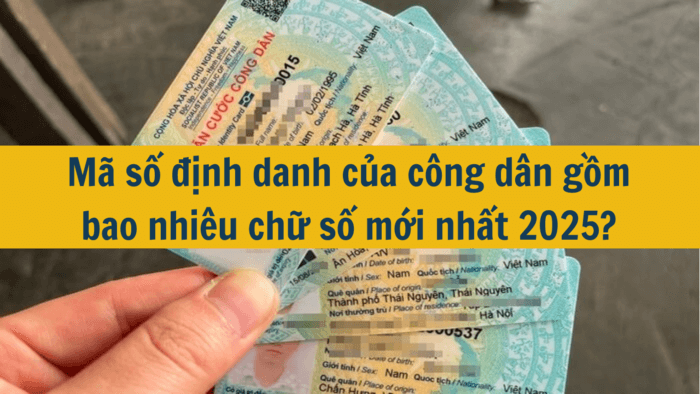 Tìm kiếm
Tìm kiếm
Chương VI Luật Hộ tịch 2014: Trách nhiệm quản lý nhà nước về hộ tịch, công chức làm công tác hộ tịch
| Số hiệu: | 60/2014/QH13 | Loại văn bản: | Luật |
| Nơi ban hành: | Quốc hội | Người ký: | Nguyễn Sinh Hùng |
| Ngày ban hành: | 20/11/2014 | Ngày hiệu lực: | 01/01/2016 |
| Ngày công báo: | 29/12/2014 | Số công báo: | Từ số 1165 đến số 1166 |
| Lĩnh vực: | Quyền dân sự | Tình trạng: | Còn hiệu lực |
TÓM TẮT VĂN BẢN
Những điểm đáng chú ý trong Luật Hộ tịch 2014
Ngày 20/11/2014, Quốc hội đã nhất trí thông qua Luật Hộ tịch 2014 và Luật có nhiều nội dung đáng chú ý như sau:
- Thẩm quyền đăng ký hộ tịch có yếu tố nước ngoài sẽ giao cho UBND cấp huyện giải quyết.
- Miễn lệ phí đăng ký hộ tịch cho người thuộc gia đình có công với cách mạng; người thuộc hộ nghèo, người khuyết tật.
- Về thẩm quyền đăng ký khai sinh: sẽ do UBND cấp xã nơi cư trú của người cha hoặc người mẹ thực hiện, trước kia thẩm quyền này được ưu tiên cho UBND nơi cư trú của người mẹ.
- Bổ sung quy định Nội dung giấy khai sinh như thông tin của người đăng ký khai sinh; thông tin của cha, mẹ; Số định danh của cá nhân của người được đăng ký khai sinh.
Luật Hộ tịch 2014 sẽ có hiệu lực thi hành từ ngày 01/01/2016.
Văn bản tiếng việt
Văn bản tiếng anh
1. Chính phủ thống nhất quản lý nhà nước về hộ tịch. Bộ Tư pháp giúp Chính phủ thực hiện quản lý nhà nước về hộ tịch.
2. Nội dung quản lý nhà nước về hộ tịch bao gồm:
a) Ban hành hoặc trình cơ quan có thẩm quyền ban hành văn bản quy phạm pháp luật về đăng ký và quản lý hộ tịch; tổ chức triển khai thực hiện pháp luật về hộ tịch;
b) Ứng dụng công nghệ thông tin trong đăng ký và quản lý hộ tịch; xây dựng và quản lý Cơ sở dữ liệu hộ tịch điện tử;
c) Thanh tra, kiểm tra, giải quyết khiếu nại, tố cáo và xử lý vi phạm pháp luật về đăng ký và quản lý hộ tịch;
d) Thống kê hộ tịch;
đ) Hợp tác quốc tế về hộ tịch.
Bộ Tư pháp thực hiện quản lý nhà nước về hộ tịch và có nhiệm vụ, quyền hạn sau đây:
1. Quy định, hướng dẫn, chỉ đạo, bồi dưỡng nghiệp vụ về đăng ký, quản lý hộ tịch cho công chức làm công tác hộ tịch ở trong nước;
2. Ban hành, hướng dẫn sử dụng, quản lý Sổ hộ tịch, Giấy khai sinh, Giấy chứng nhận kết hôn, trích lục hộ tịch và các biểu mẫu hộ tịch khác; quy định cụ thể điều kiện, trình tự đăng ký khai sinh, kết hôn, khai tử lưu động;
3. Xây dựng và quản lý thống nhất Cơ sở dữ liệu hộ tịch điện tử; hướng dẫn, chỉ đạo địa phương trong việc quản lý, sử dụng phần mềm đăng ký và quản lý hộ tịch, Cơ sở dữ liệu hộ tịch điện tử, cung cấp thông tin hộ tịch cơ bản của cá nhân cho Cơ sở dữ liệu quốc gia về dân cư;
4. Hằng năm tổng hợp tình hình, phân tích, đánh giá, thống kê hộ tịch báo cáo Chính phủ.
1. Bộ Ngoại giao phối hợp với Bộ Tư pháp thực hiện quản lý nhà nước về hộ tịch tại Cơ quan đại diện và có nhiệm vụ, quyền hạn sau đây:
a) Quy định, hướng dẫn, chỉ đạo, kiểm tra, thanh tra công tác đăng ký và quản lý hộ tịch tại các Cơ quan đại diện;
b) Tổ chức việc bồi dưỡng nghiệp vụ hộ tịch cho viên chức ngoại giao, lãnh sự;
c) Lập Sổ hộ tịch để quản lý thông tin hộ tịch của công dân Việt Nam đã đăng ký tại Cơ quan đại diện;
d) Cập nhật, khai thác Cơ sở dữ liệu hộ tịch điện tử và cấp bản sao trích lục hộ tịch theo quy định;
đ) Tổng hợp tình hình và thống kê hộ tịch của Cơ quan đại diện gửi Bộ Tư pháp theo quy định của Chính phủ.
2. Cơ quan đại diện thực hiện quản lý nhà nước về hộ tịch của công dân Việt Nam cư trú ở nước ngoài và có nhiệm vụ, quyền hạn sau đây:
a) Thực hiện việc đăng ký hộ tịch cho công dân Việt Nam cư trú ở nước ngoài theo quy định của pháp luật về hộ tịch, pháp luật về lãnh sự và điều ước quốc tế liên quan;
b) Bố trí viên chức ngoại giao, lãnh sự thực hiện nhiệm vụ đăng ký và quản lý hộ tịch tại Cơ quan đại diện;
c) Quản lý, sử dụng Sổ hộ tịch và biểu mẫu hộ tịch theo quy định;
d) Quản lý, cập nhật và khai thác Cơ sở dữ liệu hộ tịch điện tử và cấp bản sao trích lục hộ tịch theo quy định;
đ) Báo cáo Bộ Ngoại giao nội dung đăng ký hộ tịch để cập nhật vào Cơ sở dữ liệu hộ tịch;
e) Tổng hợp tình hình và thống kê hộ tịch báo cáo Bộ Ngoại giao theo quy định;
g) Lưu giữ giấy tờ, đồ vật và chúng cứ khác liên quan đến đăng ký hộ tịch;
h) Giải quyết khiếu nại, tố cáo và xử lý vi phạm về hộ tịch theo thẩm quyền.
Viên chức ngoại giao, lãnh sự làm công tác hộ tịch có trách nhiệm giúp Cơ quan đại diện thực hiện nhiệm vụ, quyền hạn theo quy định tại các điểm a, c, d, đ, e và g khoản 2 Điều này.
Bộ Công an chủ trì, phối hợp với Bộ Tư pháp, Bộ Ngoại giao và các bộ, ngành liên quan thực hiện nhiệm vụ, quyền hạn sau đây:
1. Bảo đảm kết nối Cơ sở dữ liệu quốc gia về dân cư với Cơ sở dữ liệu hộ tịch điện tử theo quy định của pháp luật;
2. Bảo đảm an ninh, an toàn thông tin trong Cơ sở dữ liệu hộ tịch điện tử;
3. Thực hiện các nhiệm vụ khác liên quan đến công tác hộ tịch.
1. Ủy ban nhân dân tỉnh, thành phố trực thuộc trung ương (sau đây gọi là Ủy ban nhân dân cấp tỉnh) thực hiện quản lý nhà nước về hộ tịch tại địa phương và có nhiệm vụ, quyền hạn sau đây:
a) Hướng dẫn, chỉ đạo việc tổ chức thực hiện công tác đăng ký và quản lý hộ tịch;
b) Tổ chức tuyên truyền, phổ biến pháp luật về hộ tịch;
c) Căn cứ quy định của Chính phủ, quyết định việc bố trí công chức làm công tác hộ tịch ở cấp huyện, cấp xã; bảo đảm cơ sở vật chất để phục vụ hoạt động đăng ký và quản lý hộ tịch;
d) Quản lý, cập nhật, khai thác Cơ sở dữ liệu hộ tịch điện tử theo quy định;
đ) Thanh tra, kiểm tra, giải quyết khiếu nại, tố cáo và xử lý vi phạm pháp luật về hộ tịch theo thẩm quyền;
e) Thu hồi, hủy bỏ giấy tờ hộ tịch do Ủy ban nhân dân cấp huyện cấp trái quy định của Luật này, trừ trường hợp kết hôn trái pháp luật;
g) Định kỳ tổ chức việc bồi dưỡng nghiệp vụ hộ tịch cho công chức làm công tác hộ tịch;
h) Tổng hợp tình hình và thống kê hộ tịch báo cáo Bộ Tư pháp theo quy định.
2. Sở Tư pháp giúp Ủy ban nhân dân cấp tỉnh thực hiện nhiệm vụ, quyền hạn quy định tại các điểm a, b, d, đ, g và h khoản 1 Điều này.
3. Chủ tịch Ủy ban nhân dân cấp tỉnh chịu trách nhiệm về công tác đăng ký, quản lý hộ tịch và những vi phạm trong công tác đăng ký, quản lý hộ tịch do buông lỏng quản lý.
1. Ủy ban nhân dân cấp huyện thực hiện quản lý nhà nước về hộ tịch tại địa phương và có nhiệm vụ, quyền hạn sau đây:
a) Thực hiện đăng ký hộ tịch theo quy định của Luật này;
b) Chỉ đạo, kiểm tra việc đăng ký và quản lý hộ tịch tại Ủy ban nhân dân cấp xã;
c) Tổ chức tuyên truyền, phổ biến các quy định của pháp luật về hộ tịch;
d) Quản lý, sử dụng Sổ hộ tịch, biểu mẫu hộ tịch theo quy định;
đ) Căn cứ quy định của Ủy ban nhân dân cấp tỉnh, bố trí công chức làm công tác hộ tịch;
e) Quản lý, cập nhật, khai thác Cơ sở dữ liệu hộ tịch điện tử và cấp bản sao trích lục hộ tịch theo quy định;
g) Thanh tra, kiểm tra, giải quyết khiếu nại, tố cáo và xử lý vi phạm pháp luật về hộ tịch theo thẩm quyền;
h) Thu hồi, hủy bỏ giấy tờ hộ tịch do Ủy ban nhân dân cấp xã cấp trái quy định của Luật này, trừ trường hợp kết hôn trái pháp luật;
i) Tổng hợp tình hình và thống kê hộ tịch báo cáo Ủy ban nhân dân cấp tỉnh theo quy định của Chính phủ;
k) Lưu trữ Sổ hộ tịch, hồ sơ đăng ký hộ tịch.
2. Phòng Tư pháp giúp Ủy ban nhân dân cấp huyện thực hiện nhiệm vụ, quyền hạn quy định tại các điểm a, b, c, d, e, g, i và k khoản 1 Điều này.
3. Đối với đơn vị hành chính cấp huyện không có đơn vị hành chính cấp xã thì ngoài việc thực hiện nhiệm vụ, quyền hạn về đăng ký và quản lý hộ tịch của Ủy ban nhân dân cấp huyện, còn thực hiện nhiệm vụ, quyền hạn đăng ký và quản lý hộ tịch của Ủy ban nhân dân cấp xã theo quy định tại Điều 71 của Luật này.
4. Chủ tịch Ủy ban nhân dân cấp huyện chịu trách nhiệm về công tác đăng ký, quản lý hộ tịch và những vi phạm trong công tác đăng ký, quản lý hộ tịch do buông lỏng quản lý.
1. Ủy ban nhân dân cấp xã thực hiện quản lý nhà nước về hộ tịch tại địa phương và có nhiệm vụ, quyền hạn sau đây:
a) Thực hiện đăng ký hộ tịch theo quy định của Luật này;
b) Căn cứ quy định của Ủy ban nhân dân cấp trên, bố trí công chức tư pháp - hộ tịch thực hiện việc đăng ký hộ tịch;
c) Tuyên truyền, phổ biến pháp luật về hộ tịch;
d) Quản lý, sử dụng Sổ hộ tịch, biểu mẫu hộ tịch theo quy định;
đ) Quản lý, cập nhật, khai thác Cơ sở dữ liệu hộ tịch điện tử và cấp bản sao trích lục hộ tịch theo quy định;
e) Tổng hợp tình hình và thống kê hộ tịch báo cáo Ủy ban nhân dân cấp huyện theo quy định của Chính phủ;
g) Lưu trữ Sổ hộ tịch, hồ sơ đăng ký hộ tịch;
h) Giải quyết khiếu nại, tố cáo và xử lý vi phạm về hộ tịch theo thẩm quyền.
2. Chủ tịch Ủy ban nhân dân cấp xã thường xuyên chỉ đạo, đôn đốc việc khai sinh, khai tử; chịu trách nhiệm về công tác đăng ký, quản lý hộ tịch và những vi phạm trong công tác đăng ký, quản lý hộ tịch do buông lỏng quản lý.
Công chức tư pháp - hộ tịch giúp Ủy ban nhân dân cấp xã thực hiện nhiệm vụ, quyền hạn quy định tại các điểm a, c, d, đ, e và g khoản 1 Điều này.
1. Công chức làm công tác hộ tịch bao gồm công chức tư pháp - hộ tịch ở cấp xã; công chức làm công tác hộ tịch ở Phòng Tư pháp thuộc Ủy ban nhân dân cấp huyện; viên chức ngoại giao, lãnh sự làm công tác hộ tịch tại Cơ quan đại diện.
2. Công chức tư pháp - hộ tịch cấp xã phải có các tiêu chuẩn sau đây:
a) Có trình độ từ trung cấp luật trở lên và đã được bồi dưỡng nghiệp vụ hộ tịch;
b) Có chữ viết rõ ràng và trình độ tin học phù hợp theo yêu cầu công việc.
Căn cứ điều kiện thực tế về diện tích, dân số, khối lượng công việc tư pháp, hộ tịch của địa phương, Chính phủ quy định việc bố trí công chức tư pháp - hộ tịch đảm nhiệm công tác hộ tịch chuyên trách.
3. Công chức làm công tác hộ tịch tại Phòng Tư pháp phải có trình độ cử nhân luật trở lên và đã được bồi dưỡng nghiệp vụ hộ tịch.
4. Viên chức ngoại giao, lãnh sự làm công tác hộ tịch tại Cơ quan đại diện đã được bồi dưỡng nghiệp vụ hộ tịch.
1. Trong lĩnh vực hộ tịch, công chức tư pháp - hộ tịch cấp xã có nhiệm vụ, quyền hạn sau đây:
a) Tuân thủ quy định của Luật này và các quy định khác của pháp luật có liên quan về hộ tịch;
b) Chịu trách nhiệm trước Ủy ban nhân dân cấp xã và pháp luật về việc đăng ký hộ tịch;
c) Tuyên truyền, phổ biến, vận động nhân dân chấp hành các quy định của pháp luật về hộ tịch;
d) Giúp Ủy ban nhân dân cấp xã đăng ký hộ tịch kịp thời, chính xác, khách quan, trung thực; cập nhật đầy đủ các sự kiện hộ tịch đã được đăng ký vào Cơ sở dữ liệu hộ tịch điện tử;
đ) Chủ động kiểm tra, rà soát để đăng ký kịp thời việc sinh, tử phát sinh trên địa bàn.
Đối với địa bàn dân cư không tập trung, điều kiện đi lại khó khăn, cách xa trụ sở Ủy ban nhân dân cấp xã, công chức tư pháp - hộ tịch báo cáo Ủy ban nhân dân cấp xã cho tổ chức đăng ký lưu động đối với việc khai sinh, kết hôn, khai tử;
e) Thường xuyên trau dồi kiến thức pháp luật để nâng cao năng lực và nghiệp vụ đăng ký hộ tịch; tham gia các lớp bồi dưỡng chuyên môn nghiệp vụ do Ủy ban nhân dân hoặc cơ quan tư pháp cấp trên tổ chức;
g) Chủ động báo cáo, đề xuất Ủy ban nhân dân cùng cấp phối hợp với cơ quan, tổ chức kiểm tra, xác minh về thông tin hộ tịch; yêu cầu cơ quan, tổ chức, cá nhân cung cấp thông tin để xác minh khi đăng ký hộ tịch; phối hợp với cơ quan Công an cùng cấp cung cấp thông tin hộ tịch cơ bản của cá nhân cho Cơ sở dữ liệu quốc gia về dân cư.
2. Quy định tại khoản 1 Điều này cũng được áp dụng đối với công chức làm công tác hộ tịch của Phòng Tư pháp, viên chức ngoại giao, lãnh sự làm công tác hộ tịch tại Cơ quan đại diện theo nhiệm vụ, quyền hạn của mình.
1. Cửa quyền, hách dịch, sách nhiễu, trì hoãn, gây khó khăn, phiền hà, nhận hối lộ khi đăng ký, quản lý hộ tịch.
2. Thu lệ phí hộ tịch cao hơn mức quy định hoặc đặt ra các khoản thu khi đăng ký hộ tịch.
3. Đặt ra thủ tục, giấy tờ, cố ý kéo dài thời hạn giải quyết đăng ký hộ tịch trái quy định của Luật này.
4. Tẩy xóa, sửa chữa, làm sai lệch nội dung thông tin trong Cơ sở dữ liệu hộ tịch.
5. Đăng ký, cấp giấy tờ về hộ tịch trái quy định của Luật này.
6. Tiết lộ thông tin liên quan đến bí mật cá nhân mà biết được qua đăng ký hộ tịch.
7. Công chức làm công tác hộ tịch vi phạm các quy định tại Điều này thì tùy theo tính chất, mức độ vi phạm có thể bị xử lý kỷ luật hoặc truy cứu trách nhiệm hình sự theo quy định của pháp luật.
STATE MANAGEMENT RESPONSIBILTIES FOR CIVIL STATUS, CIVIL STATUS OFFICERS
Section 1. STATE MANAGEMENT RESPONSIBILTIES FOR CIVIL STATUS
Article 65. Responsibilities of the Government
1. The Government shall perform the unified state management of civil status. The Ministry of Justice shall assist the Government in performing the state management of civil status.
2. Contents of state management of civil status include:
a/ To promulgate or submit to competent agencies for promulgation legal documents on civil status registration and management; to organize the implementation of the law on civil status;
b/ To apply information technology in civil status registration and management; to build and manage the electronic civil status database;
c/ To inspect, examine, settle complaints and denunciations, and handle violations of the law on civil status registration and management;
d/ To make civil status statistics;
dd/ To implement international cooperation on civil status.
Article 66. Responsibilities of the Ministry of Justice
The Ministry of Justice shall perform the state management of civil status, having the following tasks and powers:
1. To prescribe, guide, direct and train in civil status registration and management for civil status officers in the country;
2. To issue, and instruct the use and management of, civil status books, birth certificates, marriage certificates, civil status extracts and other civil status forms; to specify conditions and order for birth and marriage registration and mobile death registration;
3. To create and uniformly manage the electronic civil status database; to guide and direct localities in the management and use of civil status registration and management software, the electronic civil status database, provision of basic civil status information of individuals to the national population database;
4. To annually review the situation, analyze, assess and make statistics on civil status and report to the Government.
Article 67. Responsibilities of the Ministry of Foreign Affairs
1. The Ministry of Foreign Affairs shall coordinate with the Ministry of Justice in performing the state management of civil status at representative missions, having the following tasks and powers:
a/ To prescribe, guide, direct, examine and inspect civil status registration and management at representative missions;
b/ To organize civil status training for diplomats and consuls;
c/ To make civil status books to manage civil status information of
Vietnamese citizens already registered at representative missions;
d/ To update and exploit the electronic civil status database and issue civil status extract copies under regulations;
dd/ To summarize the civil status situation and make civil status statistics of representative missions and send such to the Ministry of Justice under regulations of the Government.
2. Representative missions shall perform the state management of civil status of Vietnamese citizens residing abroad, having the following tasks and powers:
a/ To make civil status registration for Vietnamese citizens residing abroad in accordance with the laws on civil status and consular work and relevant treaties;
b/ To assign diplomats and consuls to perform civil status registration and management tasks at representative missions;
c/ To manage and use civil status books and forms under regulations;
d/ To manage, update and exploit the electronic civil status database and issue civil status extract copies under regulations;
dd/ To report civil status registration contents to the Ministry of Foreign
Affairs for updating in the civil status database;
e/ To summarize the civil status situation and make civil status statistics for reporting to the Ministry of Foreign Affairs under regulations;
g/ To archive papers, articles and other evidences related to civil status registration;
h/ To settle complaints and denunciations and handle violations related to civil status according to competence.
Diplomats and consuls performing civil status work shall assist representative missions in performing the tasks and powers specified at Points a, c, d, dd, e and g, Clause 2 of this Article.
Article 68. Responsibilities of the Ministry of Public Security
The Ministry of Public Security shall assume the prime responsibility for, and coordinate with the Ministry of Justice, Ministry of Foreign Affairs and related ministries and sectors in, performing the following tasks and powers:
1. To ensure connection between the national population database and electronic civil status database in accordance with law;
2. To ensure security and safety for information in the electronic civil status database;
3. To perform other tasks related to civil status work.
Article 69. Responsibilities of People's Committees of provinces and centrally run cities
1. People's Committees of provinces and centrally run cities (below referred to as provincial-level People’s Committees) shall perform the state management of civil status in localities, having the following tasks and powers:
a/ To guide and direct the organization of civil status registration and management;
b/ To organize public dissemination of the law on civil status;
c/ Pursuant to the Government’s regulations, to decide on the assignment of civil status officers at district and commune levels; to ensure physical foundations to serve civil status registration and management activities;
d/ To manage, update and exploit the electronic civil status database under regulations;
dd/ To inspect, examine, settle complaints and denunciations, and handle violations of the law on civil status according to competence;
e/ To revoke and cancel civil status papers granted by district-level People’s Committees in violation of this Law, except cases of illegal marriage;
g/ To periodically organize civil status work training for civil status officers;
h/ To summarize the civil status situation and make civil status statistics for reporting to the Ministry of Justice under regulations.
2. Provincial Justice Departments shall assist provincial-level People’s Committees in performing the tasks and powers specified at Points a, b, d, dd, g and h, Clause 1 of this Article.
3. Chairpersons of provincial-level People's Committees shall take responsibility for civil status registration and management work and violations in this work due to lax management.
Article 70. Responsibilities of district-level People's Committees
1. District-level People’s Committees shall perform the state management of civil status in localities, having the following tasks and powers:
a/ To perform civil status registration in accordance with this Law;
b/ To direct and examine the civil status registration and management at commune-level People’s Committees;
c/ To organize public dissemination of the law on civil status;
d/ To manage and use civil status books and forms under regulations;
dd/ Pursuant to provincial-level People’s Committees’ regulations, to assign civil status officers;
e/ To manage, update and exploit the electronic civil status database and issue civil status extract copies under regulations;
g/ To inspect, examine, settle complaints and denunciations, and handle violations of the law on civil status according to competence;
h/ To revoke and cancel civil status papers granted by commune-level People’s Committees in violation of this Law, except cases of illegal marriage;
i/ To summarize the civil status situation and make civil status statistics for reporting to provincial-level People’s Committees under the Government’s regulations;
k/ To archive civil status books and civil status registration dossiers.
2. District-level Justice Divisions shall assist district-level People's Committees in performing the tasks and powers specified at Points a, b, c, d, e, g, i and k, Clause 1 of this Article.
3. For district-level administrative units that have no commune-level administrative units shall, in addition to performing the tasks and powers of civil status registration and management of district-level People’s Committees, also perform the tasks and powers of civil status registration and management of commune-level People’s Committees prescribed in Article 71 of this Law.
4. Chairpersons of district-level People’s Committees shall take responsibility for civil status registration and management work and violations in this work due to lax management.
Article 71. Responsibilities of commune-level People's Committees
1. Commune-level People's Committees shall perform the state management of civil status in localities, having the following tasks and powers:
a/ To perform civil status registration in accordance with this Law;
b/ Pursuant to superior-level People’s Committees’ regulations, to assign justice and civil status officers to perform civil status registration;
c/ To organize public dissemination of the law on civil status;
d/ To manage and use civil status books and forms under regulations.
dd/ To manage, update and exploit the electronic civil status database and issue civil status extract copies under regulations;
e/ To summarize the civil status situation and make civil status statistics for reporting to district-level People’s Committees under the Government’s regulations;
g/ To archive civil status books and civil status registration dossiers.
h/ To settle complaints and denunciations and handle violations related to civil status according to competence.
2. Chairpersons of commune-level People's Committees shall regularly direct and urge the birth and death declaration; take responsibility for civil status registration and management work and violations in this work due to lax management.
Justice and civil status officers shall assist commune-level People's Committees in performing the tasks and powers specified at Points a, c, d, dd, e and g, Clause 1 of this Article.
Section 2. CIVIL STATUS OFFICERS
Article 72. Civil status officers
1. Civil status officers include justice and civil status officers at commune level; civil status officers in district-level Justice Divisions of district-level People’s Committees; and diplomats and consuls performing civil status work in representative missions.
2. Commune-level justice and civil status officers must meet the following criteria:
a/ Possessing an intermediate or higher degree in law and having been trained in civil status work;
b/ Possessing a legible handwriting and computer skills suitable to their job requirements.
Based on practical conditions of geographical area, population and justice and civil status workload in localities, the Government shall stipulate the assignment of justice and civil status officers on a full-time basis.
3. Civil status officers in district-level Justice Divisions must possess a university or higher degree in law and have been trained in civil status work.
4. Diplomats and consuls performing civil status work in representative missions must have been trained in civil status work.
Article 73. Tasks and powers of civil status officers
1. In the field of civil status, commune-level justice and civil status officers have the following tasks and powers:
a/ To comply with this Law and other relevant laws concerning civil status;
b/ To take responsibility before commune-level People’s Committees and law for civil status registration;
c/ To disseminate, and mobilize people to observe, the law on civil status;
d/ To assist commune-level People’s Committees in performing civil status registration in a prompt, accurate, objective and truthful manner; fully update registered civil status events in the electronic civil status database;
dd/ To take the initiative in examination and review work to promptly register births and deaths arising in localities.
For scattered residential areas with difficult access and far away from the head offices of commune-level People’s Committees, justice and civil status officers shall report to commune-level People’s Committees for permission to organize mobile registration for births, marriages and deaths.
e/ To regularly update themselves with legal knowledge to raise their civil status registration capacity and skills; to participate in professional training courses held by People's Committees or superior-level justice agencies;
g/ To take the initiative in reporting to and proposing the People's Committees of the same level to coordinate with agencies and organizations in checking and verifying civil status information; to request agencies, organizations and individuals to provide information for civil status registration verification; to coordinate with public security offices of the same level in providing basic civil status information of individuals for the national population database.
2. The provisions of Clause 1 of this Article also apply to civil status officers in district-level Justice Divisions and diplomats and consuls performing civil status work in representative missions according to their tasks and powers.
Article 74. Prohibited acts of civil status officers
1. Being authoritarian, harassing, delaying, causing difficulties and troubles, or receiving bribes when performing civil status registration and management.
2. Collecting civil status fees higher than prescribed rates or imposing charges for civil status registration.
3. Imposing formalities and papers and prolonging the time for civil status registration in violation of this Law.
4. Erasing, altering or tampering with information contents in the civil status database.
5. Registering or granting papers related to civil status in violation of this Law.
6. Revealing personal information known through civil status registration.
7. Civil status officers who commit prohibited acts specified in this Article shall, depending on the nature and seriousness of their violations, be disciplined or examined for penal liability in accordance with law.
Văn bản liên quan
Cập nhật
Điều 5. Nguyên tắc đăng ký hộ tịch
Điều 7. Thẩm quyền đăng ký hộ tịch
Điều 9. Phương thức yêu cầu và tiếp nhận yêu cầu đăng ký hộ tịch
Điều 14. Nội dung đăng ký khai sinh
Điều 16. Thủ tục đăng ký khai sinh
Điều 26. Phạm vi thay đổi hộ tịch
Điều 34. Thủ tục đăng ký khai tử
Điều 35. Thẩm quyền đăng ký khai sinh
Điều 38. Thủ tục đăng ký kết hôn
Điều 50. Thủ tục ghi vào Sổ hộ tịch việc kết hôn, ly hôn, hủy việc kết hôn
Điều 59. Cơ sở dữ liệu hộ tịch điện tử
Điều 61. Nguyên tắc quản lý, khai thác Cơ sở dữ liệu hộ tịch
Điều 63. Cấp bản sao trích lục hộ tịch về sự kiện hộ tịch đã đăng ký
Mục 1. TRÁCH NHIỆM QUẢN LÝ NHÀ NƯỚC VỀ HỘ TỊCH
Điều 66. Trách nhiệm của Bộ Tư pháp
Điều 67. Trách nhiệm của Bộ Ngoại giao
Điều 69. Trách nhiệm của Ủy ban nhân dân tỉnh, thành phố trực thuộc trung ương
Điều 12. Các hành vi bị nghiêm cấm
Điều 14. Nội dung đăng ký khai sinh
Điều 25. Thủ tục đăng ký nhận cha, mẹ, con
Điều 28. Thủ tục đăng ký thay đổi, cải chính hộ tịch
Điều 29. Thủ tục bổ sung hộ tịch
Điều 38. Thủ tục đăng ký kết hôn
Điều 44. Thủ tục đăng ký nhận cha, mẹ, con
Điều 47. Thủ tục đăng ký thay đổi, cải chính, bổ sung hộ tịch, xác định lại dân tộc
Bài viết liên quan
Cách tra cứu số định danh cá nhân đối với người chưa có CCCD gắn chíp mới nhất 2025

Cách tra cứu số định danh cá nhân đối với người chưa có CCCD gắn chíp mới nhất 2025
Số định danh cá nhân là thông tin quan trọng trong việc quản lý và xác định danh tính của công dân, đặc biệt khi chưa sở hữu thẻ Căn cước công dân gắn chíp. Với sự phát triển của công nghệ, việc tra cứu số định danh cá nhân trở nên thuận tiện hơn thông qua các phương thức trực tuyến. Bài viết này sẽ hướng dẫn chi tiết cách tra cứu số định danh cá nhân cho những người chưa có căn cước công dân gắn chíp, dựa trên quy định và công cụ hỗ trợ mới nhất năm 2025. 14/01/2025Mã số định danh của công dân gồm bao nhiêu chữ số mới nhất 2025?

Mã số định danh của công dân gồm bao nhiêu chữ số mới nhất 2025?
Mã số định danh là một thông tin vô cùng quan trọng, gắn liền từ lúc sinh ra của mỗi công dân Việt Nam. Trong đó, mã số định danh sẽ chưa những thông tin định danh và các thông tin quan trọng khác. Vậy, mã số định danh của công dân gồm bao nhiêu chữ số? Hãy cùng theo dõi bài viết sau để tìm được câu trả lời chính xác nhất. 31/12/2024Mã định danh học sinh, sinh viên sử dụng thống nhất ở tất cả các cấp học đúng không mới nhất 2025?

Mã định danh học sinh, sinh viên sử dụng thống nhất ở tất cả các cấp học đúng không mới nhất 2025?
Mã định danh học sinh là một thông tin vô cùng quan trọng, bao gồm các thông tin định danh cũng như những thông tin xuyên suốt quá trình học tập của học sinh. Vậy, mã định danh học sinh được sử dụng đồng bộ cho toàn cấp học không? Hãy cùng theo dõi bài viết sau để tìm được câu trả lời chính xác nhất. 31/12/2024Hướng dẫn tra cứu mã số định danh trẻ em trên Cổng dịch vụ công Bộ Công an mới nhất 2025

Hướng dẫn tra cứu mã số định danh trẻ em trên Cổng dịch vụ công Bộ Công an mới nhất 2025
Mã định danh là một trong những thông tin vô cùng quan trọng, gắn liền với mỗi công dân kể từ khi sinh ra. Vậy, có thể tra cứu mã số định danh trẻ em trên Cổng dịch vụ công Bộ Công an không? Hãy cùng theo dõi bài viết sau để tìm được câu trả lời chính xác nhất. 31/12/2024Tra cứu số định danh cá nhân trên ứng dụng VNeID của bố mẹ mới nhất 2025

Tra cứu số định danh cá nhân trên ứng dụng VNeID của bố mẹ mới nhất 2025
Mã định danh là một thông tin vô cùng quan trọng đối với mỗi công dân Việt Nam, bao gồm những thông tin định danh cũng như một số thông tin quan trọng khác. Vậy có thể tra cứu số định danh cá nhân trên ứng dụng VNeID của bố mẹ không? Hãy cùng theo dõi bài viết sau để tìm được câu trả lời chính xác nhất. 31/12/2024Tra cứu số định danh cá nhân thông qua giấy khai sinh mới nhất 2025

Tra cứu số định danh cá nhân thông qua giấy khai sinh mới nhất 2025
Mã định danh là một trong những thông tin quan trọng mà mỗi công dân sẽ có kể từ khi sinh ra, giúp cung cấp những thông tin liên quan đến việc định danh cũng như một số thông tin quan trọng khác. Vậy có thể tra cứu số định danh cá nhân thông qua giấy khai sinh không? Hãy cùng theo dõi bài viết sau để tìm được câu trả lời chính xác nhất. 31/12/2024Hướng dẫn tra cứu mã số định danh trẻ em trên ứng dụng định danh điện tử VNeID mới nhất 2025

Hướng dẫn tra cứu mã số định danh trẻ em trên ứng dụng định danh điện tử VNeID mới nhất 2025
Mã số định danh là một thông tin vô cùng quan trọng không chỉ với trẻ em mà còn là của mọi công dân Việt Nam, giúp cung cấp những thông tin định danh cũng như một số thông tin quan trọng khác. Vậy có thể tra cứu mã số định danh trẻ em trên ứng dụng định danh điện tử VNeID được không? Hãy cùng theo dõi bài viết sau để tìm được câu trả lời chính xác nhất. 31/12/2024Hướng dẫn tra cứu mã số định danh trẻ em online nhanh chóng, đơn giản mới nhất năm 2025 như thế nào?

Hướng dẫn tra cứu mã số định danh trẻ em online nhanh chóng, đơn giản mới nhất năm 2025 như thế nào?
Mã định danh là một trong những thông tin quan trọng đối với mỗi công dân Việt Nam. Đây là một loại mã mà thông qua đó, ta có thể biết được các thông tin định danh cũng như một số thông tin quan trọng khác. Vậy, cách tra cứu mã số định danh trẻ em online nhanh chóng và đơn giản hiện nay là như thế nào? Hãy cùng theo dõi bài viết sau để tìm được câu trả lời chính xác nhất. 30/12/2024Quê quán có phải là nơi sinh không?

Quê quán có phải là nơi sinh không?
Nguyên quán là một khái niệm quan trọng trong các giấy tờ pháp lý, thể hiện nguồn gốc quê hương của một cá nhân. Việc ghi thông tin nguyên quán chính xác không chỉ đảm bảo tuân thủ quy định pháp luật mà còn giúp tránh những rắc rối khi thực hiện các thủ tục hành chính. Vậy quê quán có phải là nơi sinh không? Hãy cùng tìm hiểu chi tiết trong bài viết dưới đây. 30/12/2024Nguyên quán có thay đổi được không?


 Luật Hộ tịch 2014 (Bản Word)
Luật Hộ tịch 2014 (Bản Word)
 Luật Hộ tịch 2014 (Bản Pdf)
Luật Hộ tịch 2014 (Bản Pdf)